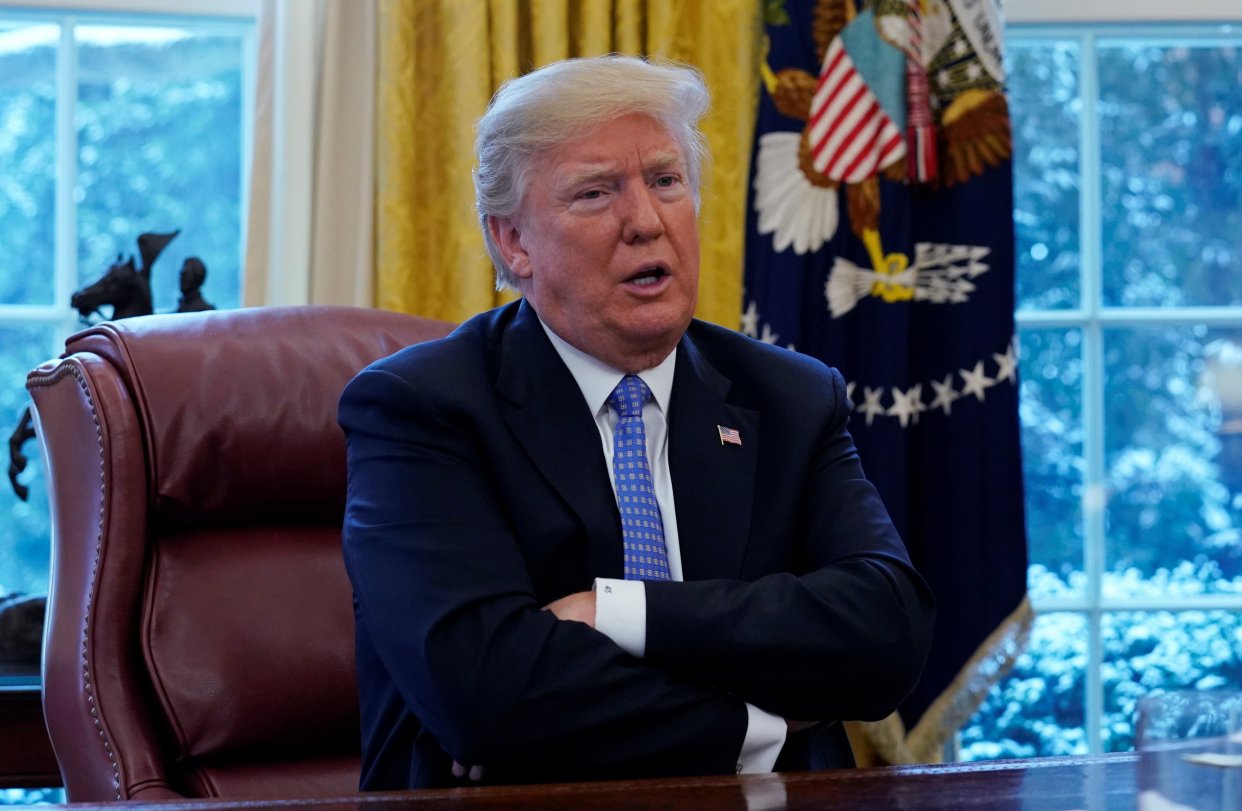Analyzing Trump's Criticism Of European Trade Practices

Table of Contents
Trump's Accusations of Unfair Trade Practices
Trump's administration frequently leveled accusations of unfair trade practices against the European Union. These accusations centered around several key areas:
Focus on Tariffs and Non-Tariff Barriers
Trump repeatedly criticized the EU's use of tariffs and non-tariff barriers, arguing they hindered fair competition and harmed American businesses.
- Specific Examples: The EU's tariffs on steel and aluminum imports, retaliatory tariffs imposed in response to US actions, and agricultural tariffs were frequently cited as examples of protectionist measures.
- Non-Tariff Barriers: Regulations concerning product safety, environmental standards, and labeling requirements were also highlighted as obstacles to US exports, implicitly labeled as non-tariff barriers designed to stifle competition.
- Economic Impact: Studies analyzing the impact of these barriers offer varied conclusions, with some highlighting negative effects on US exports and others emphasizing the limited overall effect on US trade. The impact varied significantly across sectors, with some industries suffering more severely than others. Further research into the distributional consequences of these trade measures is needed for a comprehensive understanding.
Allegations of Currency Manipulation
A recurring theme in Trump's criticism was the accusation that the EU manipulated its currency to gain an unfair trade advantage.
- Arguments For and Against: Proponents of this view argued that a deliberately undervalued Euro made European exports cheaper and more competitive. Opponents countered that currency values are influenced by numerous complex factors, and attributing manipulation to specific actors is a vast oversimplification.
- Impact of Currency Fluctuations: The impact of currency fluctuations on trade imbalances is a complex topic debated among economists. While a weaker currency can boost exports in the short term, long-term consequences can be detrimental, including inflation and reduced purchasing power.
Subsidies and State Aid
Trump's administration also frequently criticized EU subsidies and state aid to specific industries, arguing that these practices distorted competition.
- Examples: Specific examples included subsidies to Airbus and other European industries, which Trump argued unfairly disadvantaged their US competitors.
- Legal Framework: The EU operates under a robust legal framework governing state aid, designed to ensure fair competition within the single market. However, the application and enforcement of these rules have been subjects of ongoing disputes.
The Impact of Trump's Trade Policies on the EU
Trump's trade policies had significant repercussions for the EU, impacting both economic and political relations.
Retaliatory Tariffs and Trade Wars
The EU responded to Trump's tariffs with its own retaliatory measures, escalating the trade conflict.
- Economic Consequences: Both sides suffered economic consequences, with disruptions to supply chains, increased prices for consumers, and negative impacts on specific industries like agriculture and manufacturing.
- Industry-Specific Impacts: The impact varied considerably by sector. Some sectors, particularly those heavily reliant on exports to the US, experienced significant losses, while others were less affected.
Shifting Global Trade Alliances
Trump's "America First" approach led to uncertainty in global trade alliances and challenged the EU's established trade relationships.
- Multilateral Trade Agreements: The Trump administration's withdrawal from the Trans-Pacific Partnership (TPP) and its renegotiation of NAFTA (now USMCA) created uncertainty and prompted the EU to reassess its strategies for multilateral trade agreements.
- Navigating a Changing Landscape: The EU responded by strengthening its own trade agreements with other countries and actively pursuing new alliances to mitigate the impact of the US trade policies.
Alternative Perspectives and Analysis of Trump's Claims
A critical assessment of Trump's criticisms requires considering alternative perspectives and analyses.
Economic Analyses and Counterarguments
Numerous economic analyses have been conducted to evaluate the validity of Trump's claims.
- Supporting and Refuting Evidence: While some studies supported certain aspects of Trump's accusations, others presented counterarguments based on alternative data interpretations and methodological approaches.
- Credible Sources and Research: Independent research from reputable think tanks and academic institutions offer a broader perspective than the often politically charged rhetoric of the time.
Political Motivations and Domestic Politics
Trump's trade policies were not solely driven by economic considerations. Domestic political factors played a significant role.
- Political Motivations: Critics argued that some of Trump's actions were intended to appeal to his electoral base, particularly in manufacturing-heavy states.
- Impact on US Political Landscape: Trump's trade policies had significant impacts on the US political landscape, fueling debates about globalization, protectionism, and the role of government in the economy.
Conclusion: Understanding the Legacy of Trump's Criticism of European Trade Practices
Trump's criticism of European trade practices left a lasting impact on transatlantic relations and the global trading system. His accusations, while often politically charged, spurred debate on the fairness and efficacy of various trade practices. While some of his criticisms resonated with concerns about protectionism and unfair competition, the resulting trade war highlighted the potential economic damage of protectionist policies and the importance of multilateral cooperation in resolving trade disputes. To further understand the long-term effects of this period, it's crucial to continue researching Trump's criticism of European trade practices and its ongoing influence on global trade dynamics. For in-depth analyses, explore publications from the Peterson Institute for International Economics, the World Trade Organization, and academic journals specializing in international trade. The lasting legacy of these policies serves as a cautionary tale about the complexities of international trade and the potential consequences of prioritizing short-term political gains over long-term economic stability.

Featured Posts
-
 I O Vs Io Key Differences And Their Impact On Ai Development
May 25, 2025
I O Vs Io Key Differences And Their Impact On Ai Development
May 25, 2025 -
 Atletico Madrid Sevilla Yi 2 1 Yendi Mac Oezeti Ve Analiz
May 25, 2025
Atletico Madrid Sevilla Yi 2 1 Yendi Mac Oezeti Ve Analiz
May 25, 2025 -
 Paris Fashion Week Amira Al Zuhairs Zimmermann Debut
May 25, 2025
Paris Fashion Week Amira Al Zuhairs Zimmermann Debut
May 25, 2025 -
 13 Vuotias Moottoriurheilun Ihmelapsen Nimi Muistiin Ferrarin Uusi Taehti
May 25, 2025
13 Vuotias Moottoriurheilun Ihmelapsen Nimi Muistiin Ferrarin Uusi Taehti
May 25, 2025 -
 55 Letie Naomi Kempbell Kak Izmenilas Legendarnaya Model
May 25, 2025
55 Letie Naomi Kempbell Kak Izmenilas Legendarnaya Model
May 25, 2025
